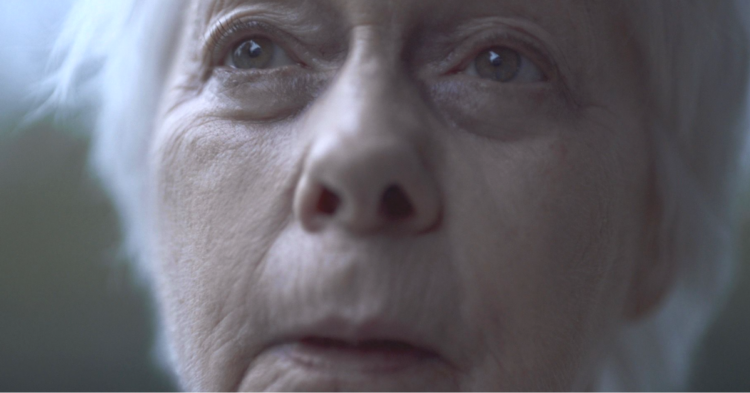The discussion around euthanasia and dying with dignity is a controversial one, to say the least. Wherever you land on the spectrum, it’s safe to say we all want our loved ones to feel cared for and safe during their final days.
Hollywood veteran Jenny O’Hara is ready to engage in that difficult conversation, and Diply was lucky enough to sit down with her and discuss her latest film, Killing Eleanor .
Winner of Best Narrative at the 2020 Savannah Film Festival, “Killing Eleanor” is a film that broaches a subject that is still taboo to many.
The film, starring Annika Marks and Jenny O’Hara, tells the story of two women who strike up a deal for two very different outcomes.
Marks plays Natalie, a woman struggling with substance abuse in desperate need of clean urine after several stints in rehab. O’Hara plays Eleanor, a terminally-ill woman wanting to die.
The two decide to help each other out — Eleanor will pee in a cup for Natalie, and Natalie will help Eleanor die.

The film touched Jenny O’Hara personally.
“She’s a remarkable woman. She is strong, She is stubborn. She is clear. She knows what she wants and she will pursue it and she’s going to make it happen no matter what,” she laughed. “With a great deal of humour and a lot of sarcasm and bite.”
“She’s no pushover and she has reached a decision. This is it, this is what’s going to be, but she doesn’t know how to go about it.”

Inserting humor into a film about death isn’t something O’Hara, whose prestigious pedigree includes My Sister Sam , The King of Queens , Big Love , and The Mindy Project , struggled with.
“It was easy. Everything about her makes her tough. She has a heart. A baggy one, I admit. They diagnosed her with a big, baggy heart — whatever that means, I didn’t want to know.”
The film’s theme brings an intimate look at bodily autonomy in someone’s final days.

“It’s vital for people to make that decision, and to be able to have help with it,” O’Hara told us. “We have that right. We have to have that right.”
When asked what she hopes the main takeaway for viewers is, she expressed her desire for people to understand the importance of allowing our loved ones to die with dignity. “I would hope that they would be able to give their parents or their beloved others of whatever age the help that they need to make an exit that isn’t painful.”
“My mother died a little over a year ago at the age of 103. The last three and a half years if not more she was in pretty vacant dementia,” the 79-year-old recalled.

“I have no idea what her inner world was. I can’t imagine it. And she couldn’t articulate it. Was it a dream state? Is it pain? Is it confusion? Is it feelings of abandonment? Terror? She had night terrors for a while.”
When her mother would hallucinate about people in her home, O’Hara recalled how she would simply exist in her mother’s state so as to not alarm her reality — “You just take care of them,” she explained.
When it comes to which roles the Hollywood veteran prefers — comedy or drama — O’Hara insisted she “injects comedy in every tragedy and tragedy in every comedy.”

“I like playing characters that are real,” she added. “That have a reality to them, a life situation that feels authentic to me. Then, you can do anything with it.”
After reading the script, written by friend and co-star Annika Marks, the actress knew the film was telling an important story about people maintaining control in their life, right until the very end.
The result was a film made in three weeks that has a message that covers the importance of a lifetime.

Killing Eleanor sheds light on the often forgotten about population — loved ones who have lost the ability to take care of themselves, whose very existence is still being studied by our best medical professionals.
Killing Eleanor tells the story most want to look away from, but one that deserves to be heard and seen.

















































